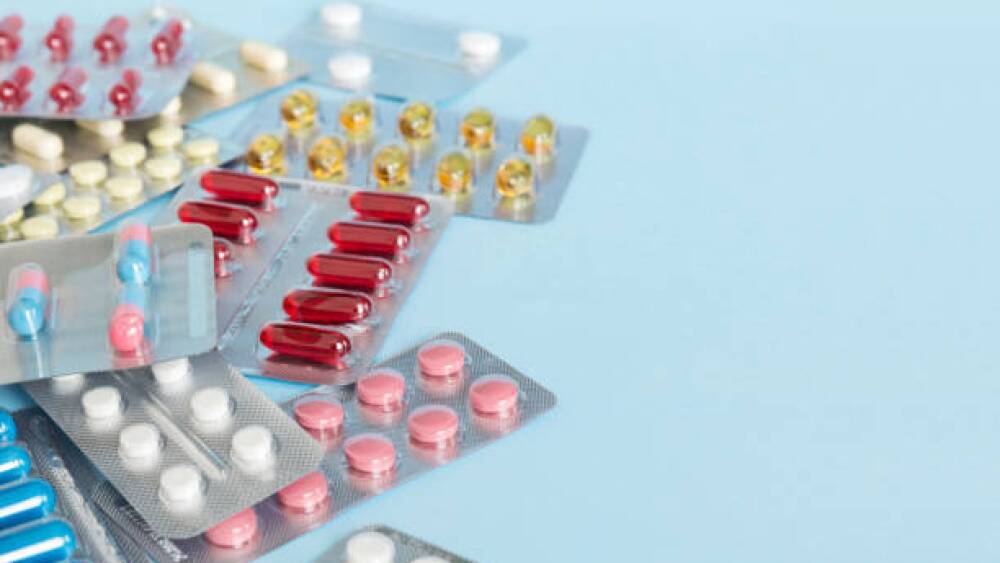“Several therapies have been introduced in the past few years that have led to improvements in the way we treat advanced kidney cancer,” says Joseph S. Camardo, M.D., Senior Vice President, Global Medical Affairs, Wyeth Pharmaceuticals. “In the INTORACT study, we hope to learn more about whether combining TORISEL with other agents in the first-line setting may further improve outcomes for patients with this devastating disease.”
The primary end point of the INTORACT study is independently assessed progression-free survival (PFS) of patients in all risk groups. Secondary end points include safety, investigator-assessed PFS, independently assessed objective response rate (complete response plus partial response) and overall survival.
A treatment regimen combining the mTOR (mammalian target of rapamycin) inhibitor TORISEL with the vascular endothelial growth factor (VEGF) inhibitor Avastin was shown in a phase 1/2 trial of patients with stage IV renal cancer to have an acceptable safety profile and supported further investigation in a phase 3 study.
“We hope to learn whether a regimen that combines the angiogenesis inhibition of bevacizumab with the mTOR inhibition of temsirolimus may provide further evidence of clinical utility in advanced RCC,” says Brian Rini, M.D., of the Cleveland Clinic Taussig Cancer Institute in Cleveland, and co-principal investigator of INTORACT.
RCC will account for approximately 85 percent of the estimated 54,390 new cases of kidney cancer that will be diagnosed in the United States annually, and about 40 percent of these patients will have advanced disease at the time of diagnosis. Clear-cell RCC accounts for about 75 percent of all RCC cases.
Wyeth is conducting a number of studies examining TORISEL in various settings. Additional information about TORISEL studies is available at http://www.clinicaltrials.gov.
About TORISEL
TORISEL is the only approved cancer therapy that specifically inhibits the mTOR kinase, an important regulator of cell proliferation, cell growth and cell survival. Inhibition of mTOR in treated cancer cells blocked the translation of genes that regulate the cell cycle. In in vitro studies using renal cancer cell lines, TORISEL inhibited the activity of mTOR and resulted in reduced levels of certain cell growth factors involved in the development of new blood vessels, such as vascular endothelial growth factor.
TORISEL is approved for the treatment of advanced RCC in the United States, European Union and other markets, based on results of a phase 3 clinical study that demonstrated that TORISEL improves overall survival for patients with advanced RCC compared with interferon-alfa.
Important Safety Information
Hypersensitivity reactions manifested by symptoms, including, but not limited to anaphylaxis, dyspnea, flushing, and chest pain have been observed with TORISEL. Serum glucose, serum cholesterol, and triglycerides should be tested before and during treatment with TORISEL. The use of TORISEL is likely to result in hyperglycemia and hyperlipemia. This may result in the need for an increase in the dose of, or initiation of, insulin and/or oral hypoglycemic agent therapy and/or lipid-lowering agents, respectively.
The use of TORISEL may result in immunosuppression. Patients should be carefully observed for the occurrence of infections, including opportunistic infections. Cases of interstitial lung disease, some resulting in death, have occurred. Some patients were asymptomatic and others presented with symptoms. Some patients required discontinuation of TORISEL and/or treatment with corticosteroids and/or antibiotics. Cases of fatal bowel perforation occurred with TORISEL. These patients presented with fever, abdominal pain, metabolic acidosis, bloody stools, diarrhea, and/or acute abdomen. Cases of rapidly progressive and sometimes fatal acute renal failure not clearly related to disease progression occurred in patients who received TORISEL.
Due to abnormal wound healing, use TORISEL with caution in the perioperative period. Patients with central nervous system tumors (primary CNS tumor or metastases) and/or receiving anticoagulation therapy may be at an increased risk of developing intracerebral bleeding (including fatal outcomes) while receiving TORISEL. Live vaccinations and close contact with those who received live vaccines should be avoided. Patients and their partners should be advised to avoid pregnancy throughout treatment and for 3 months after TORISEL therapy has stopped.
The most common (incidence =30%) adverse reactions observed with TORISEL are: rash (47%), asthenia (51%), mucositis (41%), nausea (37%), edema (35%), and anorexia (32%). The most common laboratory abnormalities (incidence =30%) are anemia (94%), hyperglycemia (89%), hyperlipemia (87%), hypertriglyceridemia (83%), elevated alkaline phosphatase (68%), elevated serum creatinine (57%), lymphopenia (53%), hypophosphatemia (49%), thrombocytopenia (40%), elevated AST (38%), and leukopenia (32%). Most common grades 3/4 adverse events included asthenia (11%), dyspnea (9%), hemoglobin decreased (20%), lymphocytes decreased (16%), glucose increased (16%), phosphorus decreased (18%), and triglycerides increased (44%).
Strong inducers of CYP3A4/5 (eg, dexamethasone, rifampin) and strong inhibitors of CYP3A4 (eg, ketoconazole, atazanavir) may decrease and increase concentrations of the major metabolite of TORISEL, respectively. If alternatives cannot be used, dose modifications of TORISEL are recommended. St. John’s Wort may decrease TORISEL plasma concentrations, and grapefruit juice may increase plasma concentrations of the major metabolite of TORISEL, and therefore both should be avoided. The combination of TORISEL and sunitinib resulted in dose-limiting toxicity (Grade 3/4 erythematous maculopapular rash, and gout/cellulitis requiring hospitalization).
Please see TORISEL full Prescribing Information at http://www.TORISEL.com.
Wyeth Pharmaceuticals
Wyeth Pharmaceuticals, a division of Wyeth, has leading products in the areas of women’s health care, infectious disease, gastrointestinal health, central nervous system, inflammation, transplantation, hemophilia, oncology, vaccines and nutritional products.
Wyeth is one of the world’s largest research-driven pharmaceutical and health care products companies. It is a leader in the discovery, development, manufacturing and marketing of pharmaceuticals, vaccines, biotechnology products, nutritionals and non-prescription medicines that improve the quality of life for people worldwide. The Company’s major divisions include Wyeth Pharmaceuticals, Wyeth Consumer Healthcare and Fort Dodge Animal Health.
The statements in this press release that are not historical facts are forward-looking statements that are subject to risks and uncertainties that could cause actual results to differ materially from those expressed or implied by such statements. These risks and uncertainties include, without limitation, the inherent uncertainty of the timing and success of, and expense associated with, research, development, regulatory approval and commercialization of our products and pipeline products; government cost-containment initiatives; restrictions on third-party payments for our products; substantial competition in our industry, including from branded and generic products; emerging data on our products and pipeline products; the importance of strong performance from our principal products and our anticipated new product introductions; the highly regulated nature of our business; product liability, intellectual property and other litigation risks and environmental liabilities; uncertainty regarding our intellectual property rights and those of others; difficulties associated with, and regulatory compliance with respect to, manufacturing of our products; risks associated with our strategic relationships; economic conditions including interest and currency exchange rate fluctuations; changes in generally accepted accounting principles; trade buying patterns; the impact of legislation and regulatory compliance; risks and uncertainties associated with global operations and sales; and other risks and uncertainties, including those detailed from time to time in our periodic reports filed with the Securities and Exchange Commission, including our current reports on Form 8-K, quarterly reports on Form 10-Q and annual report on Form 10-K, particularly the discussion under the caption “Item 1A, Risk Factors” in our Annual Report on Form 10-K for the year ended December 31, 2007, which was filed with the Securities and Exchange Commission on February 29, 2008. The forward-looking statements in this press release are qualified by these risk factors. We assume no obligation to publicly update any forward-looking statements, whether as a result of new information, future developments or otherwise.




